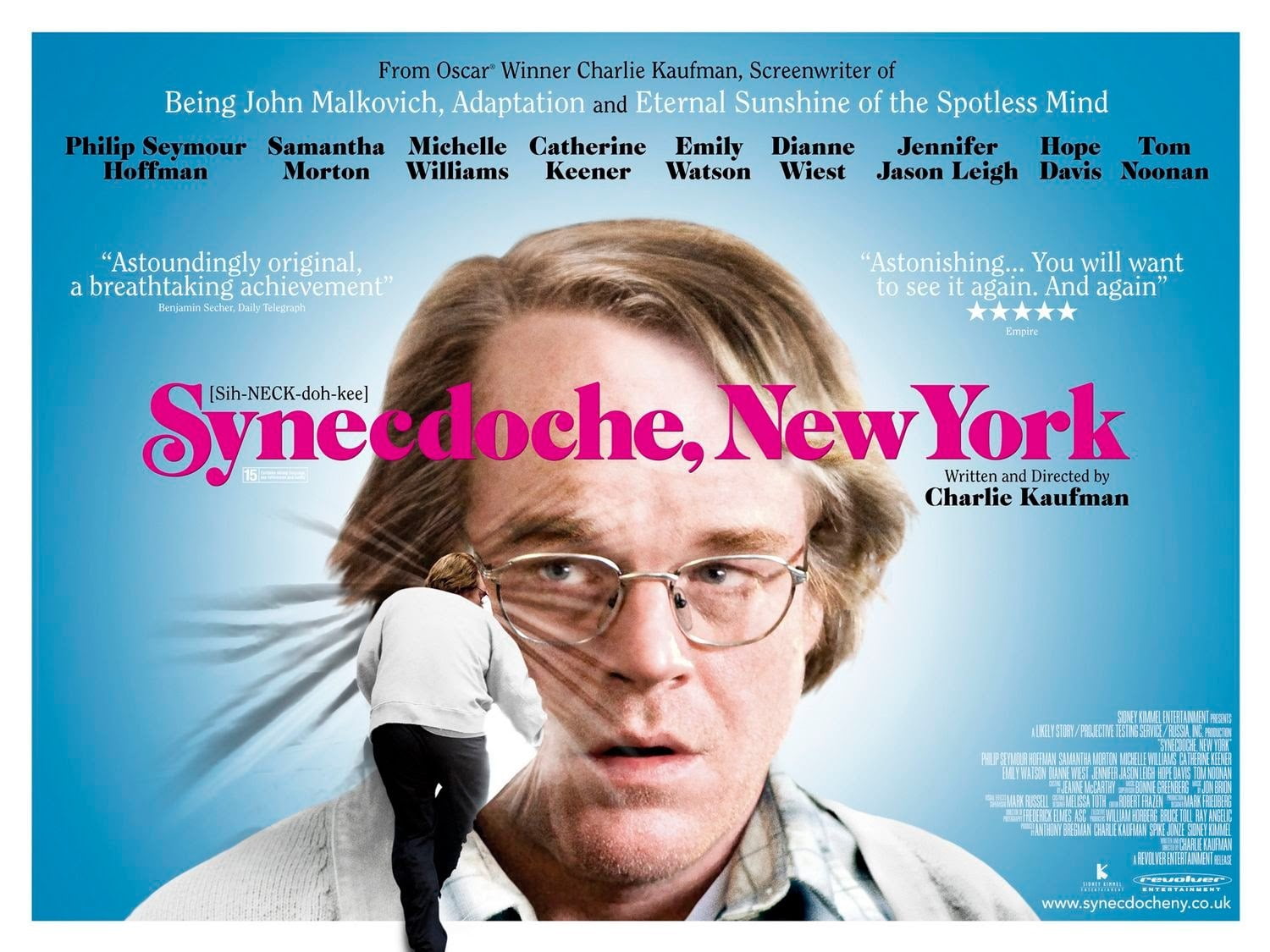I think that Eternal Sunshine of the Spotless Mind is a great film (I was pleasantly surprised when it was ending up on so many of those premature Best Of The Decade lists), and Being John Malkovich and Adaptation are two of the most original and smart films I’ve seen. Therefore, Charlie Kaufman directing his own script is an automatic ‘must-see’ film, even if you have to look up definition of the word in the title to find out how it describes the film itself.
The only trouble with trying to capture thoughts on this film is that I don’t think I have the capacity – I’m not a stupid person, I’m well educated and well read, but I felt that I missed a lot of what was going on because I haven’t read and seen all the same things that Kaufman has. To condense my ramblings: I liked it, it was thought provoking, but I don’t have an urge to see it again.
The film’s idea is an intriguing one: a theatre director gets a grant to make a play; he decides to make the play about his life, but trying to capture the entirety of the concept of his life to make it as realistic as possible, with the actors he casts as himself and other members of his life effectively playing the roles all day, every day. The size of the project increases exponentially, as the amount of detail required to capture a life in a play runs out of control.
The actors (in the film) do a good job: Philip Seymour Hoffman is a great choice for the central character, and there is able support from Samantha Morton, Catherine Keener, Tom Noonan, Michelle Williams and Dianne Wiest, among others. The interactions between different people and how they are different people themselves is a great actorly concept for them, and Kaufman seems to be happy to work with such a large cast on his first film. He does a good job at directing, although he’s not a great visualist, which might be expected.
There is weirdness, obviously: Morton’s character lives in a house which seems to be constantly on fire; Hoffman’s relationship with his wife and daughter is particularly odd; the project he’s working on seems to expand to a life-sized replica of New York in a warehouse, which seems to have unlimited funds and goes on for ages without actually putting the play in front of an audience. However, there are some nice moments in it: there were several scenes which showed Hoffman ageing and wondering where the time had gone, something we the audience feel but in a different way, which feels exactly like those moments in life. It feels like Kaufman is trying to get down the concept of a life in the limits of a movie by including these little time capsules, where you feel life slipping away from you.
The film is unusual, and I wouldn’t necessarily call it entertaining, but it was interesting, with an odd sense of humour and it left me thinking about it well after the film had ended.
Rating: DAVE




